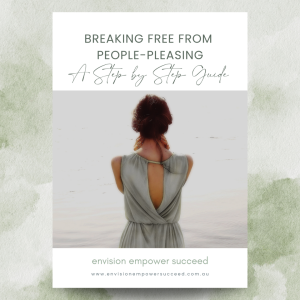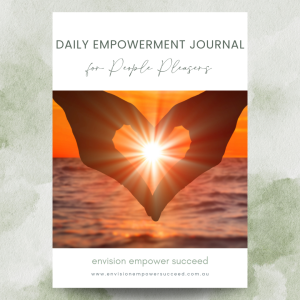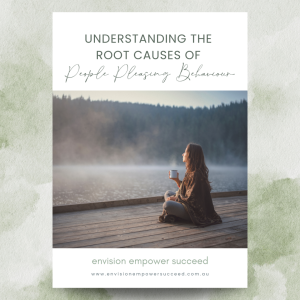People-pleasing can often lead to a loss of personal identity and self-worth. For those seeking to break free from the exhausting cycle of constantly trying to make others happy at their own expense, literature can offer invaluable guidance and support.
Here are ten must-read books that can help people pleasers reclaim their power and live more authentically.
“Daring Greatly: How the Courage to Be Vulnerable Transforms the Way We Live, Love, Parent, and Lead” by Brené Brown
Brown’s book focuses on the power of vulnerability. It teaches that embracing our imperfections and daring to be vulnerable are key to building meaningful relationships and living authentically. Learn more here.
“Setting Boundaries” by Rebecca Ray.
In Setting Boundaries, Dr Ray shares science-based advice and tools to help you:
– identify your boundaries and when they have been crossed
– recognise the patterns and habits that have failed to support you to feel empowered
– engage in difficult conversations from a place of strength and self-kindness
– set clear, intentional boundaries and become your most loving, fulfilled and authentic self.
“Please Yourself. How to Stop People-Pleasing and Transform the Way You Live by Emma Reed Turrell.
In this life-changing book, psychotherapist Emma Reed Turrell explains the different ‘types’ of people-pleaser and provides practical, reassuring advice on how to better understand – and stop – people-pleasing behaviour when it starts to affect your own needs. Learn more here.
“The Disease to Please: Curing the People-Pleasing Syndrome” by Harriet B. Braiker
Braiker’s book is a cornerstone for understanding the people-pleasing syndrome. It offers practical advice on recognising and changing people-pleasing behaviours, helping readers to set healthy boundaries and prioritize their own needs. Learn more here.
“Boundaries: When to Say Yes, How to Say No to Take Control of Your Life” by Henry Cloud and John Townsend
This book delves into the importance of setting and maintaining healthy boundaries. It’s a guide for those who struggle to say no, teaching how to assertively express their needs and desires. Learn more here.
“The Art of Saying NO: How to Stand Your Ground, Reclaim Your Time and Energy, and Refuse to be Taken for Granted” by Damon Zahariades
Zahariades offers a straightforward approach to saying no. This book is perfect for those who find themselves overcommitted, providing strategies to decline requests without feeling guilty. Learn more here.
“Codependent No More: How to Stop Controlling Others and Start Caring for Yourself” by Melody Beattie
A classic in the self-help genre, Beattie’s book addresses the issues of codependency often intertwined with people-pleasing. It encourages self-care and independence, essential for people pleasers. Learn more here.
“Nice Girl Syndrome: Stop Being Manipulated and Abused – And Start Standing Up for Yourself” by Beverly Engel
Engel’s book is a wake-up call for ‘nice girls’ who are prone to people-pleasing. It highlights the dangers of being overly compliant and teaches how to adopt more assertive behaviours. Learn more here.
“The Life-Changing Magic of Not Giving a F*ck: How to Stop Spending Time You Don’t Have with People You Don’t Like Doing Things You Don’t Want to Do” by Sarah Knight
With humor and wit, Knight’s book is a refreshing take on prioritising personal happiness and wellbeing. It’s a guide to letting go of unwanted obligations and focusing on what truly matters. Learn more here.
“When I Say No, I Feel Guilty” by Manuel J. Smith
Smith’s book is a practical manual for assertiveness training. It provides readers with the verbal techniques and mental exercises needed to assert themselves in various life situations without feeling guilty. Learn more here.
“The Assertiveness Workbook: How to Express Your Ideas and Stand Up for Yourself at Work and in Relationships” by Randy J. Paterson
This workbook is an excellent resource for those looking to develop assertiveness skills. It’s filled with activities and exercises to practice standing up for oneself in a healthy, balanced way. Learn more here.
Each of these books offers unique perspectives and practical strategies to help people pleasers find balance, assert themselves, and live a life true to their own desires and values. Reading them can be the first step towards a more fulfilling and self-directed life.




